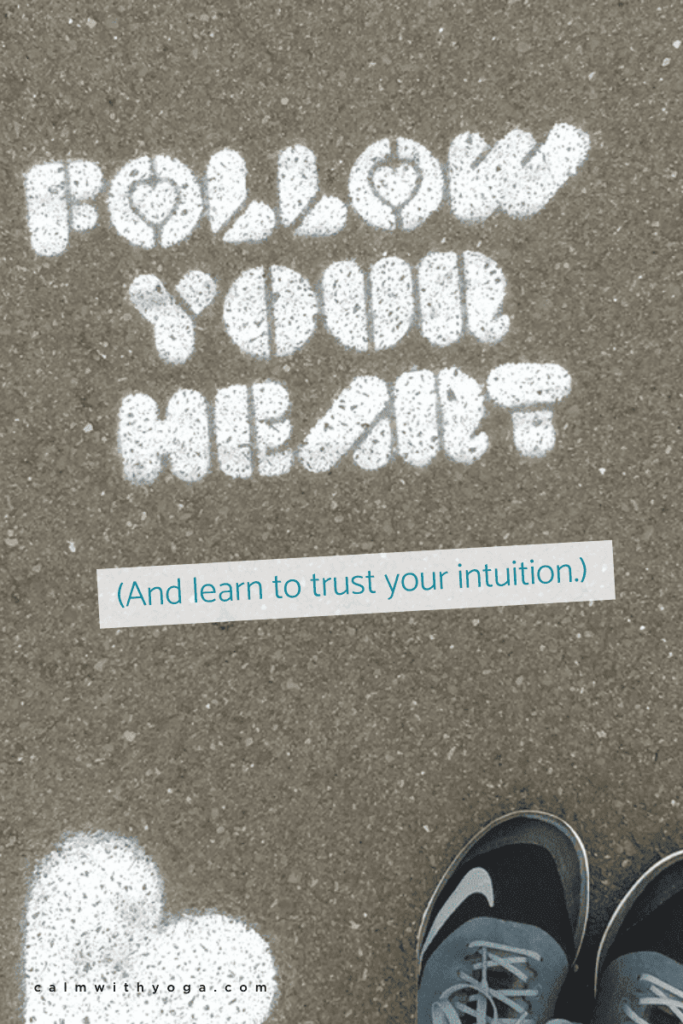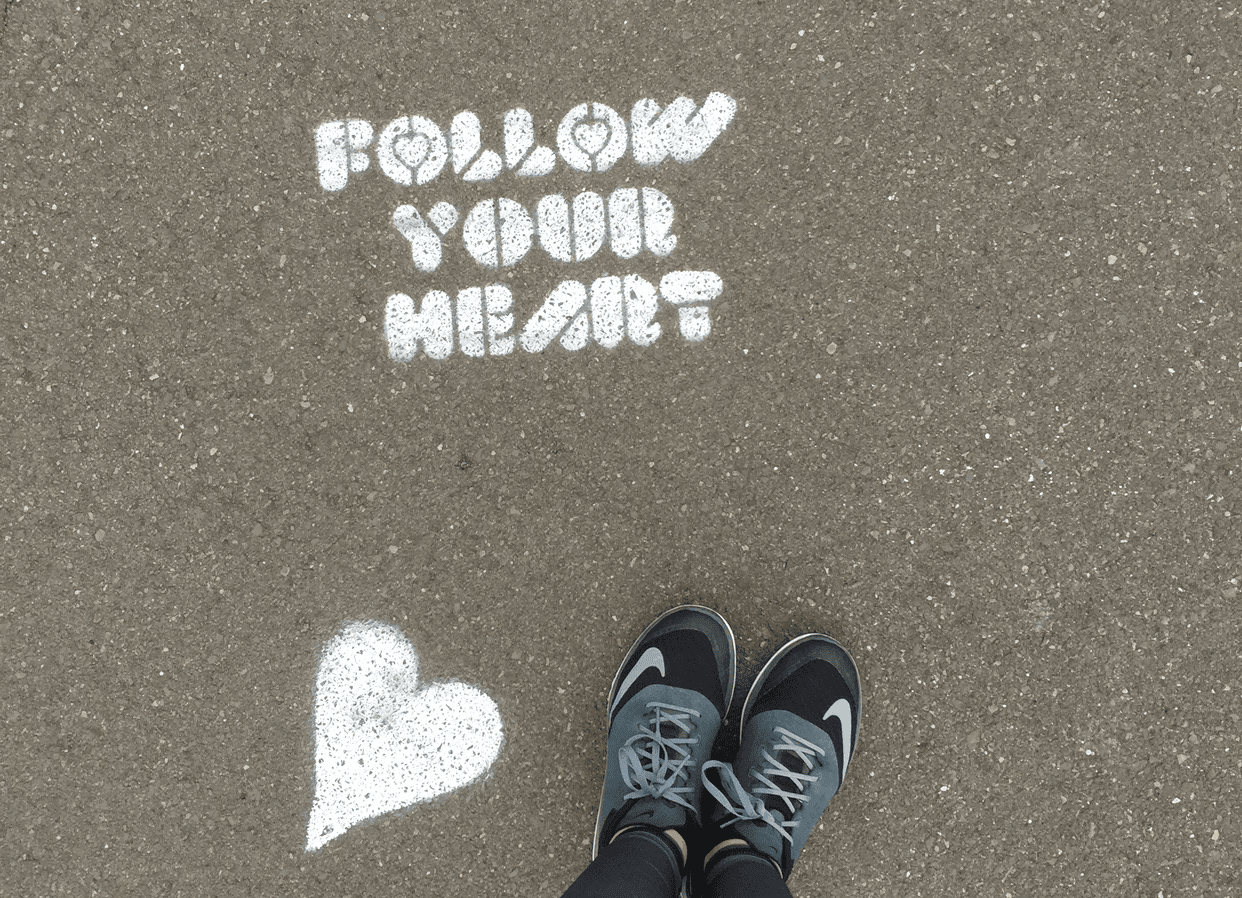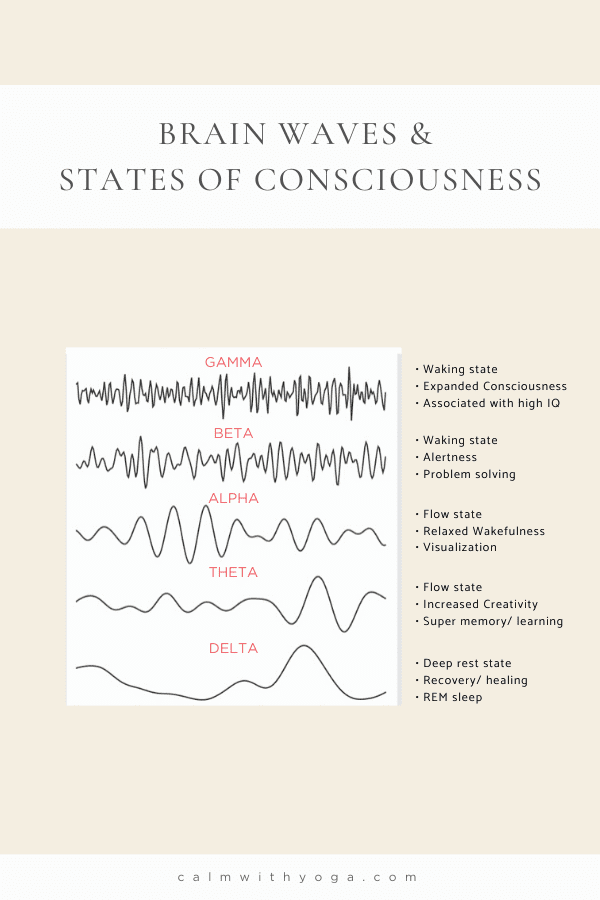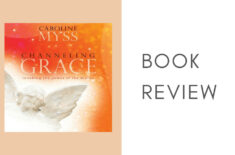Think of a time you felt a strong intuitive tug and followed it…
What was the outcome?
And when you had an intuitive tug about something and ignored it?
What was the outcome then?
We’ve all experienced moments where we went against the inner tug and ended up saying:
“Damn, I wish I would have followed what I felt!”
We’ve also experienced moments where we decided to heed that nudge and ended up dodging a curveball or hitting the mark in some way and said:
“Thank God I listened to myself on this one!”
The intuitive voice within is real.
It’s an inherent superpower we all have been gifted with, we’ve just forgotten how to use it.
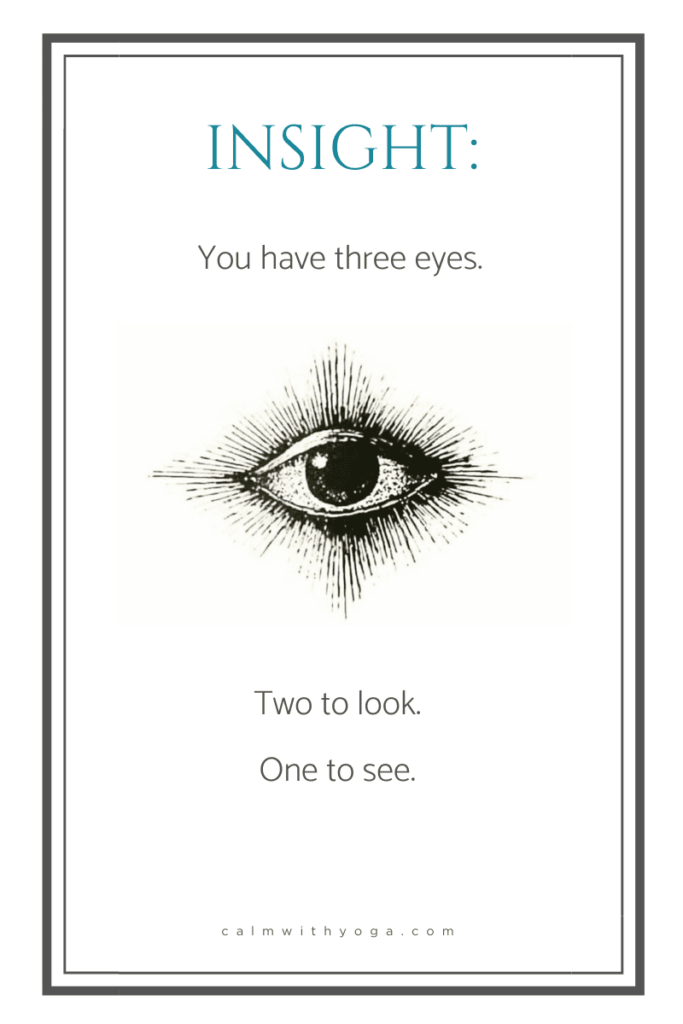
The intuitive mind is a sacred gift and the rational mind is a faithful servant.
We have created a society that honors the servant and has forgotten the gift.
Albert Einstein
Society has conditioned most of us to favor the left-brained, analytical, rational mind and conscious reasoning above all.
We’ve needed to in order to succeed and stay ahead of the curve.
And it’s served us well.
The downside is that a lot of us have become so proficient with our rational, linear brains that we’ve become like a kid learning to ride a bike with training wheels when it comes to intuition…
Our society encourages our intuitive edge to be suppressed.
The upside is that intuition is like a muscle, if we work with it and use it regularly it will strengthen and firm over time and it will become second nature.
If you’re reading this and thinking: “I am not intuitive,” I tell you that you are, you’ve just simply atrophied your muscle to the point where you’ve numbed it out.
You can bring it back to life.
If you’re a mom then you’re likely familiar with that “sixth sense” or motherly instinct that kicks in over your children’s well-being.
But what’s the difference between intuition and instinct?
How do you know if it’s information you can trust?
What are some specific steps can you take to make your mother’s intuition stronger?
Let’s take a look…
Intuition vs Instinct
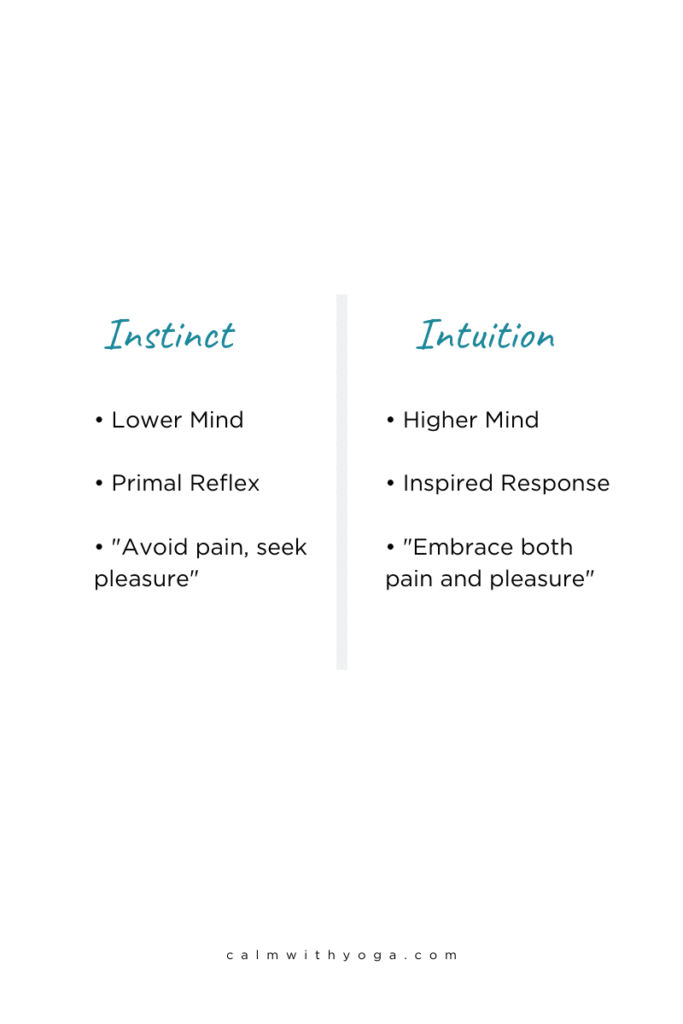
Although the two words are commonly used interchangeably, intuition and instinct are different…
Instinct:
Instinct refers to the impulsive and primal stimulus-response effect that’s observed in all animals, including us.
It’s a reactionary avoidance mechanism that’s influenced by past uncomfortable experience.
Instinct is based on running away from painful challenges while running towards pleasure.
It arises from our lower mind.
Other ways to describe it: gut instinct, gut feeling, gut reaction.
Instinct is tied to our primal fear reactions, aka the fight or flight response that programs us to protect and defend.
The voice of fear (and instinct) tells us to move away from threats and move towards pleasure.
Intuition:
Intuition stems from our evolutionary progress away from this primitive “avoid pain, seek pleasure” model and towards a transcendent “inspired insight and inner vision” model.
It arises from our higher mind.
The word ‘intuition’ comes from the Latin verb ‘intueri’ which is usually translated as “to look inside.”
The voice of intuition urges us to embrace both pain and pleasure as we move towards our goals and dreams.
Intuition transcends the confines of past experience, pain, and the senses.
It’s like a tuning fork connecting us with the infinite intelligence and creative wisdom of the Universe.
Other ways to describe intuition: internal nudges, promptings, inner knowing, inner sensing, and hunch.
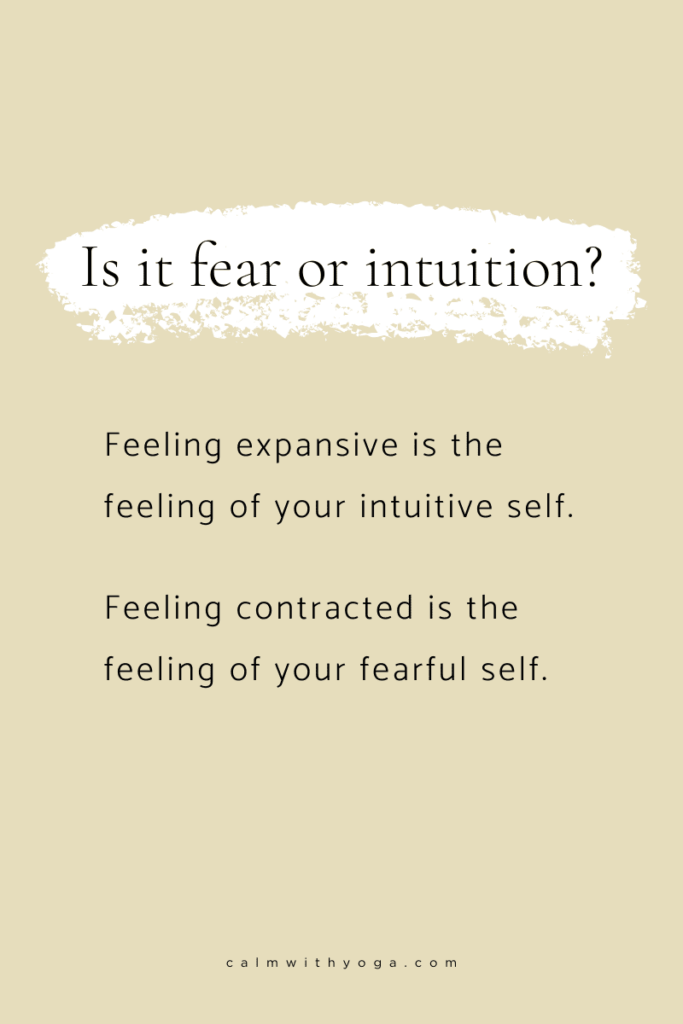
This intuitive guidance can be both loud/strong or quiet/soft/subtle.
Sometimes it manifests physically or via the senses in the form of shivers up your spine, or hot flashes, or goosebumps or other similar physical sensations.
Sometimes it’s just a deep knowing that seems to arise out of nowhere… a sense of something that cannot be measured or quantified.
True intuition feels expansive.
Fear feels contractive.
How do we know when we’re in real danger?
How can we know if what we’re feeling is reliable intuition?
A perfect example of this came from a conversation I had with Howard Martin, one of the original leaders who helped found The Heartmath Institute, where he recounted a story from his college days.
The story goes as follows:
“In college, at the end of the school year, we went out to the local bar with my friends and were drinking.
One of them suggested we hop in the car and go to another school not far from us and hook up with these girls we knew.
And what 19-year-old boy wouldn’t want to do that, right?
So we got in the car and I had a feeling that I wanted to get out so I said I wasn’t going to go so they started picking on me and were saying, “Nah, you’re coming with us.”
As I tried to get out of the car they pulled me back in and I fought my way out of the car and continued to proceed with my end of year school festivities.
I was awakened in the middle of the night by the assistant dean of men that said, “all four boys have been killed in a car wreck.”
Something prompted me to get out of that car, and I’ve always remembered that.”
In Howard’s case, if he hadn’t listened to his intuition he wouldn’t have been alive to have this conversationwith me.
Intuition is deepened when we’re willing to listen to it.
Like a delicate plant, we’ve got to have the right climate and environment for it to flourish.
It’s up to us to plant the fertile soil.
Just like intuition can be strengthened, it can also be weakened.
One of the biggest causes of weak intuition is chronic fear and stress because they force our minds and bodies to enter into states that literally close us off from any kind of inner guidance.
Fear stifles our capacity for inner knowing, yet fear is something we all deal with on a regular basis.
So how do we allow the intuitive voice within to surface amidst the loud clamor of stress, worry, anxiety, and overwhelm?
The following is a summary of what creates the optimal conditions for your intuitive side to bloom when you find yourself at a crossroad and can’t tell whether the nudge is your intuition leading the way, or your fear getting in the way:
1. Understand how fear works.
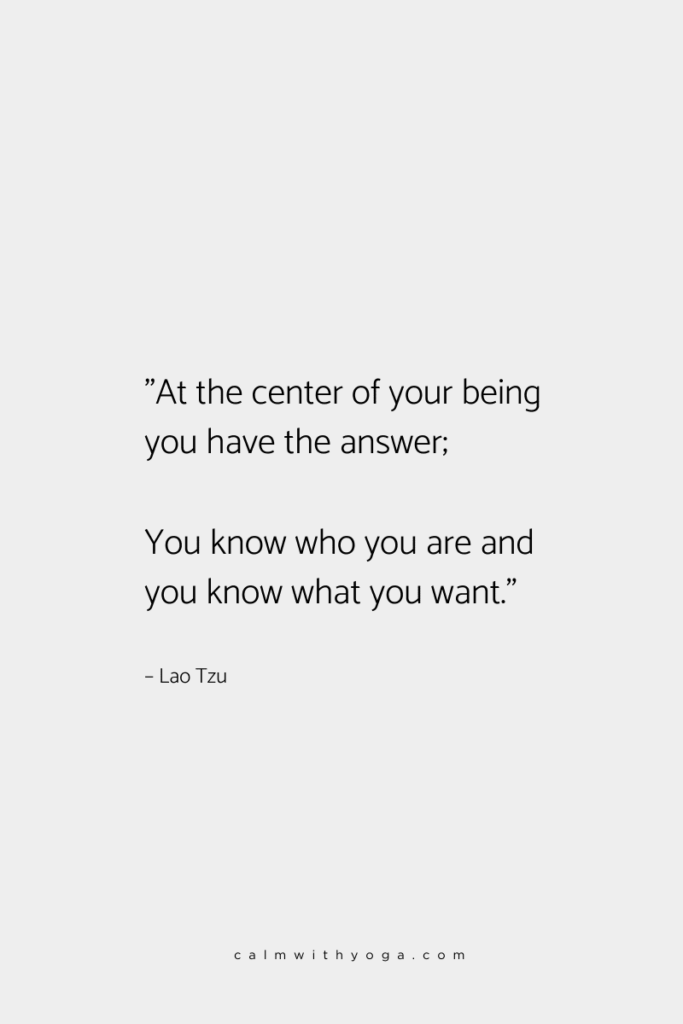
We live in a society that programs fear into the center of our hearts and psyches, just plug into the news or the media and what you’ll mostly find is a slew of fear-inducing headlines and stories.
Why?
Because we humans respond to the negative more than we respond to positive, as outlined in this study conducted by Outbrain:
“The average click-through rate on headlines with negative superlatives was a staggering 63% higher than that of their positive counterparts.”
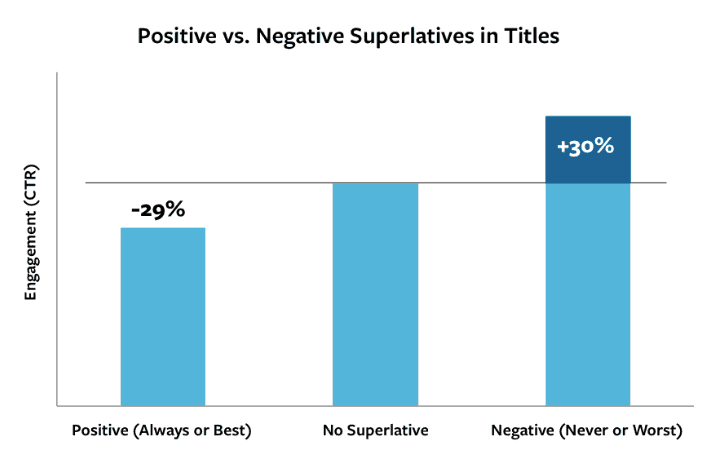
Fear is kryptonite to our intuitive selves; it deafens with loud undecipherable static where nothing can get through.
Work with me for a moment here…
Think back to a time when you were really tapped into your intuition.
Pinpoint that moment in time, where you were, what was around you, what you were thinking and how you were feeling…
Were you feeling powerful and present, or fearful?
My guess is you were not only feeling powerful and present, but also centered, grateful, and grounded… far from fearful.
That is not a coincidence.
Even our own biology cooperates with us when we’re in such states of mindful centeredness.
We’re literally smarter.
Why?
Because fear not only originates in the brain, it also cripples the brain.
You’ve probably heard about the “Fight, Flight, Freeze” response that occurs when our brain detects a potential threat or danger.
Back in the caveman days, this was very useful to protect from hungry lions and such.
Today, hungry lions come in many forms, and most of them are perceived and projected potential “dangers” instead of actual life-threatening circumstances.
Our brains signal the secretion of stress chemicals like adrenaline and cortisol into our bloodstream.
In this sense, the full range of our emotions all has corresponding neurotransmitter chemicals that impact and shape our biochemistry.
The more we repeat thought and belief patterns that keep these chemicals in our bloodstream, the more “addicted” we become to these emotions and states of being.
On a very physiological level – even our cells become addicted to the chemicals and therefore require more and more of them to maintain setpoints.
When we’re in fear we’re in survival mode.
Our energy is being used up in defense rather than in creation.
When we’re in survival mode we can only think and react – respond only to the level of our current thinking (i.e.: instinct).
No new sensory information or insight can get into our awareness in this state.
We are literally frozen in the past, and our body and brain truly believe we are repeating the same past instances.
And what’s worse, our bodies become addicted to that state of being.
2. Understand how intuition is accessed.
Intuition has its own frequency (vibration). When we emulate that frequency we tap into that flow of insights, nudges, and knowing.
We can access this frequency in two ways:
A) The Heart:
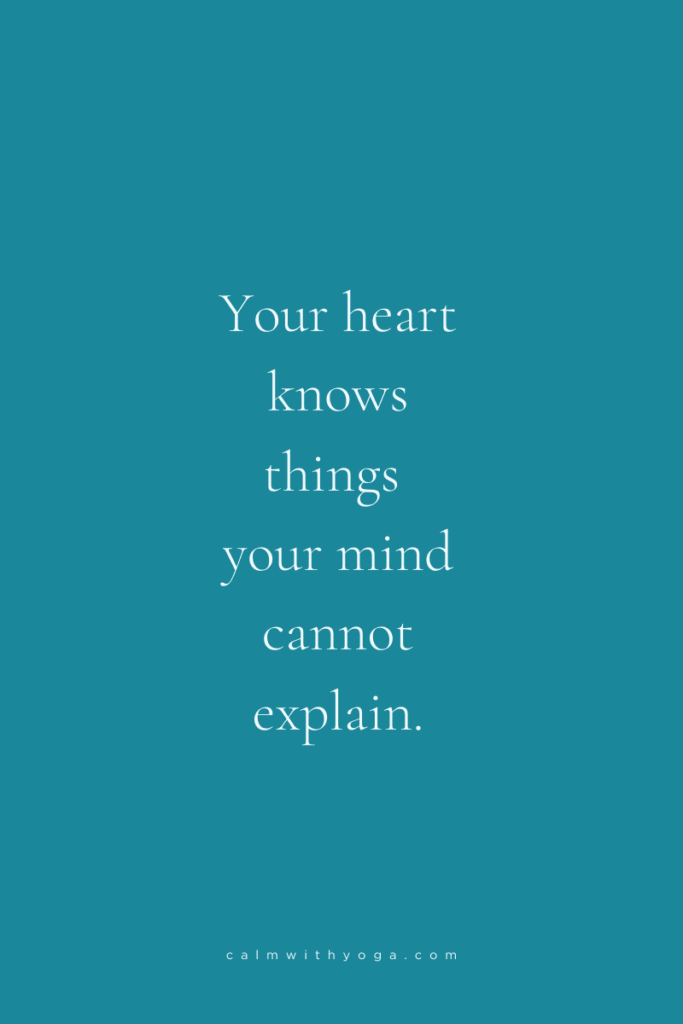
The Institute of Heartmath (IHM) has been researching the body’s heart intelligence and its relationship to stress management for over two decades.
They have conducted some groundbreaking research regarding the human heart and have found that there’s a direct correlation between our heart’s rhythm and our emotional states and stress levels.
During their studies they found that:
The heart was acting as if it has a mind of its own, and was profoundly influencing the way we perceive and respond to the world…
Heart coherence, marked by coherent, or smooth and balanced heart rhythms, is the optimal state for your heart, mind and emotions and all of the processes in your body, including cognitive, hormonal, digestive, respiratory and immune systems.
IHM, Science of the Heart
Our bodies enter into heart coherence when we are in that delicious state of:
- grounded gratitude & appreciation for what is
- presence & mindfulness
- inspired creativity & flow
- inner peace, contentment, & serenity
- a deep sense of connection to ourselves, another, & the world around us (i.e.: cuddlefest with your significant other or pet)
Heartmath’s studies also reveal that when we are in a state of heart coherence, not only are we significantly more intuitive, the heart also displays the ability for precognition of events. (How’s that for foresight?)
B) The Brain:
Know how to ride the brain waves…
Brain waves are electrical exchanges created between neural synapses.
Brainwaves represent communication within the brain.
Neurons are specialized nerve cells that transmit impulses; they are the basic working units of the brain.
Information flows from one neuron to the other across a synapse.
These neural synapses act as the bridge of communication between the billions of neurons within our brain, switching on and off like little Christmas lights on a tree.
Brain waves represent an electric frequency/vibration that can be measured via an EEG (electroencephalogram) that reads the oscillation (energetic wave) levels in different regions of the brain.
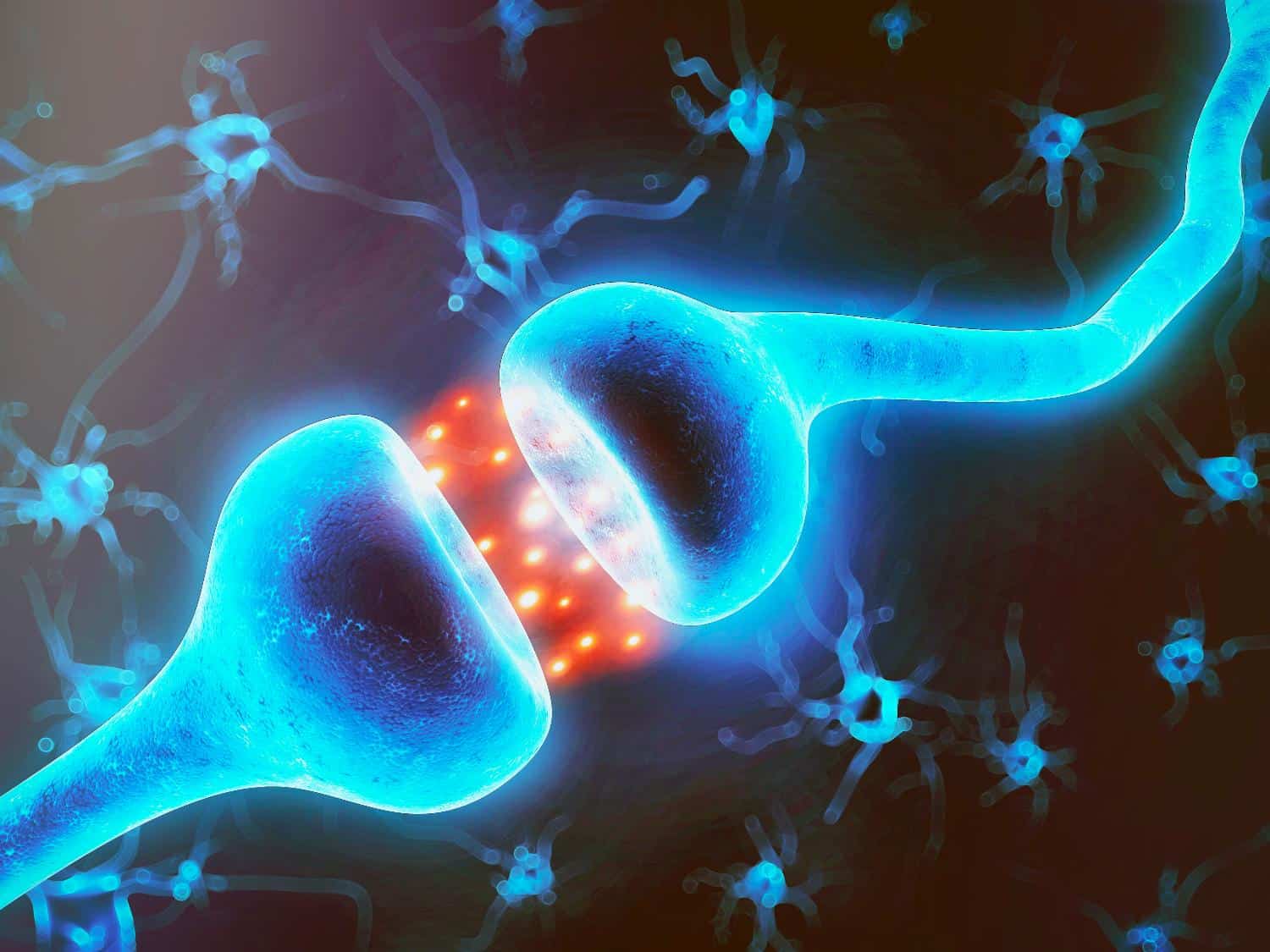
There are 5 main brainwave states. Each different wave state pertains to a different state of consciousness.
There are specific brainwave frequencies that help us access our intuitive side more and some less:
1) Beta waves are emitted when our mind is actively aroused and engaged in mental activity.
Let’s define ‘mental activity’ as:
“strong use of logic and/or critical thinking, or heightened state of alertness”
Beta waves are also present when we’re tense, anxious, scared or worked up, which means this is when we can hear our intuition the least.
The frequency of Beta waves ranges from 13 – 40 Hz cycles/second.
(*Exact brainwave ranges vary; this is an approximate range.)

2) Alpha waves pertain to a state of relaxation yet we’re still aware of our surroundings.
In this state, we think and analyze less and visualize more.
Alpha state is considered to be the portal to the subconscious mind (and therefore the gateway to your intuition!)
Alpha state is found right at the borders of our conscious awareness.
The frequency of Alpha waves ranges from 8-13 Hz cycles/second.

3) Theta waves are even slower than Alpha waves and can be accessed when in deep meditation, light sleep, hypnosis, or when truly disconnected from conscious reality.
Theta state can also be accessed when deep in your visualization or in deep concentration on a particular task to the point where it becomes so automatic you mentally disengage from it.
For example, have you ever been on a long scenic drive and all of a sudden, you came back to consciousness and realized you’d been zoned out for the last couple of miles?
That’s theta.
We have even more access to our intuitive knowing when we’re in this state, which is why we often get “flashes of great ideas.”
Theta waves range from 4-8 Hz cycles/second.

4) Delta waves are the slowest frequency waves and are associated with our deepest, dreamless sleep as well as with deep transcendental meditation where our awareness is fully inward and detached from our outer reality.
Delta frequency ranges from .5 – 4 Hz cycles/second.

5) Gamma waves are the most recently discovered band of frequencies at the highest recorded range – 40 Hz cycles/second and above.
Researchers know very little about this mind state.
Thus far, initial research has linked gamma waves to cognition, information processing, associative learning, attention, and memory.
This state has also been reportedly associated with the transcendental “blissed out” feelings of long-term experienced meditators such as monks.

The Intuitive Decision-Making Checklist:
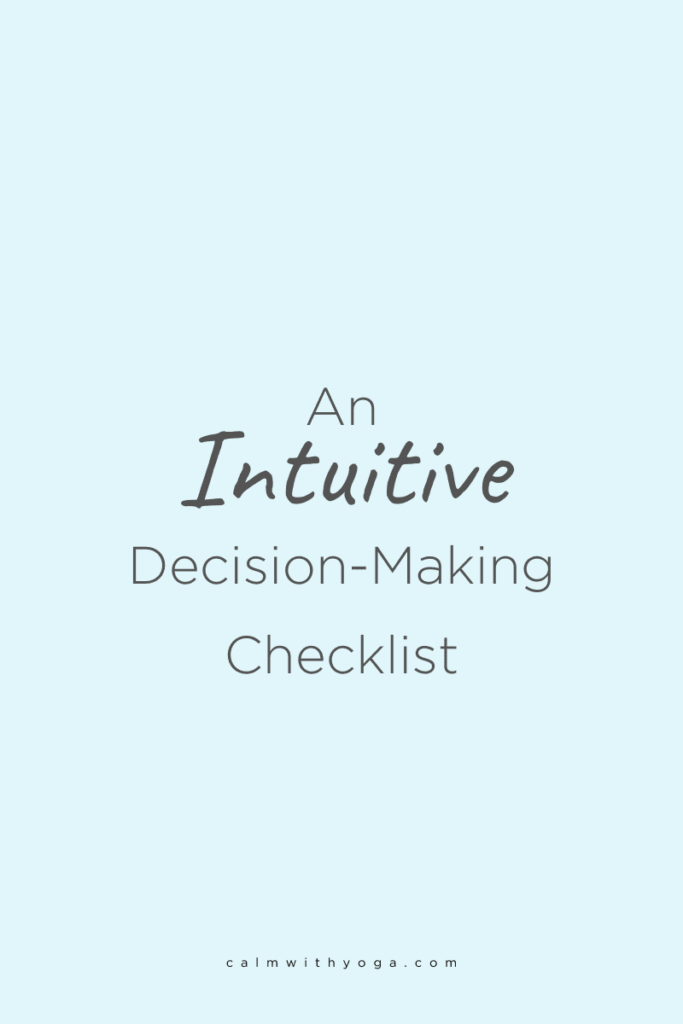
Wanna know how to make better decisions and good decisionsmore often?
It doesn’t matter whether you’re faced with a personal or business decision – the following decision-making process will help you increase intuitive thinking and that sixth senseyou already have within you.
While rational decision making is a great place to start, taking an intuitive approach creates more conscious thoughts.
This checklist will help you sharpen your pattern recognition skills in life and also lead to more intuitive judgments IF you follow each step as it is outlined…
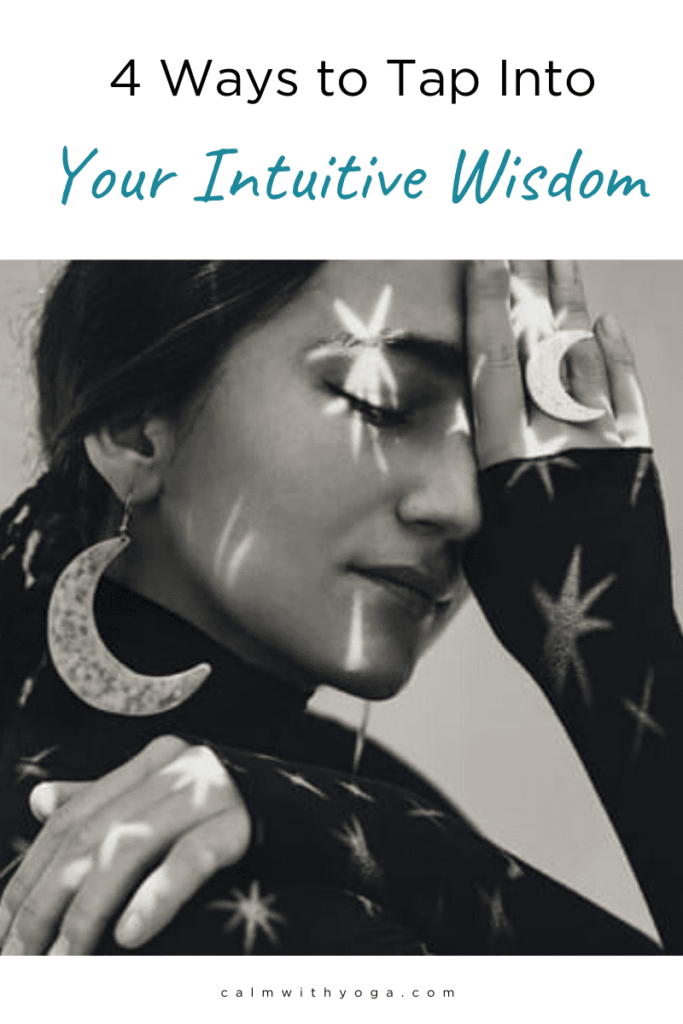
1) Stop what you’re doing and get present. Step into this moment. Connect with the Now.
Notice your breathing.
Are your breaths short and shallow or deep and long?
Short and shallow implies survival mode (aka intuition turned OFF).
Deep and long breaths imply creation mode (aka intuition turned ON) because this pace of breathing calms the nervous system and allows the mental fog to dissipate.
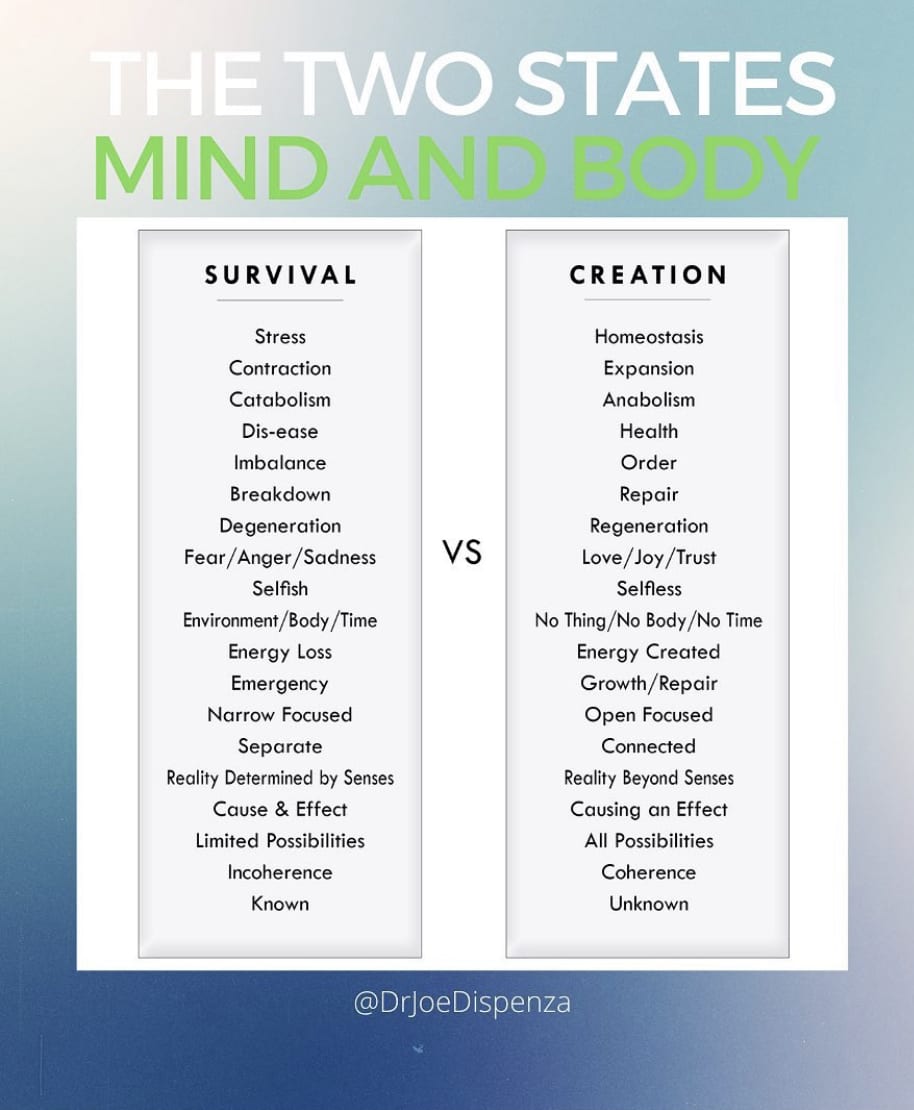
Be deliberate about breathing deeply, slowly, and mindfully when you notice you’re not.
Inhale for 7 counts.
Hold for 7 counts.
Exhale for 7.
Hold for 7.
Repeat 7 times.
I call this exercise Breathing 7’s.
This one little hack has been a lifesaver for me.
The more I use it, the more conscious I get about my body and of my mental/emotional/energetic state.
When I notice I’m about to fly off the handle or am about to enter anger or panic mode, this one simple technique brings me back to equilibrium.
My short and shallow breaths lengthen.
My narrow and reactionary awareness softens into a heightened inner knowing.
The alarm bells ringing inside my head blend into my heartbeat and I am brought back to my center.
Try it.
Notice how Breathing 7’s will help you control your impulsivity, melt irritability, and calm your inner storm.
As you feel your lungs fill up and expand with air notice how your body feels.
Notice what sensations, if any, surface.
As the air leaves your lungs, follow the breath and feel into your body then.
What do you notice?
Can you feel the subtle shift in energy?
2) Get into Heart Coherence + Alpha/Theta brainwave state.
As you’ve just learned, the state of your brain dictates the state of your mood and consciousness level, and therefore also dictates the degree to which you’re able to access your intuitive knowing.
If you’re feeling stressed out, anxious, angry, or overwhelmed chances are you’re in high beta.
When you’re in high beta you’re in survival mode and you’re closed off from your intuition.
(Hint: short and shallow breaths, sweaty palms, heart beating fast, and feeling hot are all indicators of high beta brainwave state and heart incoherence)
When you notice you’re in this space it’s time to get out of your head and into your body.
It’s time to turn your focus and senses inward to recalibrate.
It’s time to step far enough away from the problem so you can transcend your current level of thinking.
We cannot solve our problems with the same level of thinking that created them.
Albert Einstein
Here are some surefire ways to help you get your heart coherent and your brain vibrating on Alpha/Theta:
- Breathe 7’s.
- Take a long solo walk in nature.
- Walk barefoot on the grass or sand or dirt.
- Head to a yoga or meditation class.
- Hug/Cuddle/Kiss your most favorite loved one.
- Hug/Cuddle your beloved pet.
- Head to a pet shelter or pet store and cuddle with a furry one.
- Treat yourself to a massage, reiki, or aromatherapy session.
- Dedicate two hours to your favorite hobby.
- Take a long, luxurious candlelight bubble bath.
- Dance your little heart out to your favorite music.
- Sing your favorite song at the top of your lungs. (Grab a friend for added potency.)
- Find a funny friend and have a laugh attack.
- Watch something that makes you laugh till you cry.
Another more direct way to hack your brain and heart into a coherent Alpha/Theta state is to plug into some brain entrainment music.
This is music that is specifically and scientifically formulated to tune your brain to this desired frequency. Some really great ones I’ve tried & tested and personally use & recommend are:
- Dr. Jeffrey Thompson
- Focus @ Will
- Steven Halpern
- Bill Harris’s Holosync Technology
- Tom Kenyon’s Acoustic Brain Research
3) Feel into yourself.
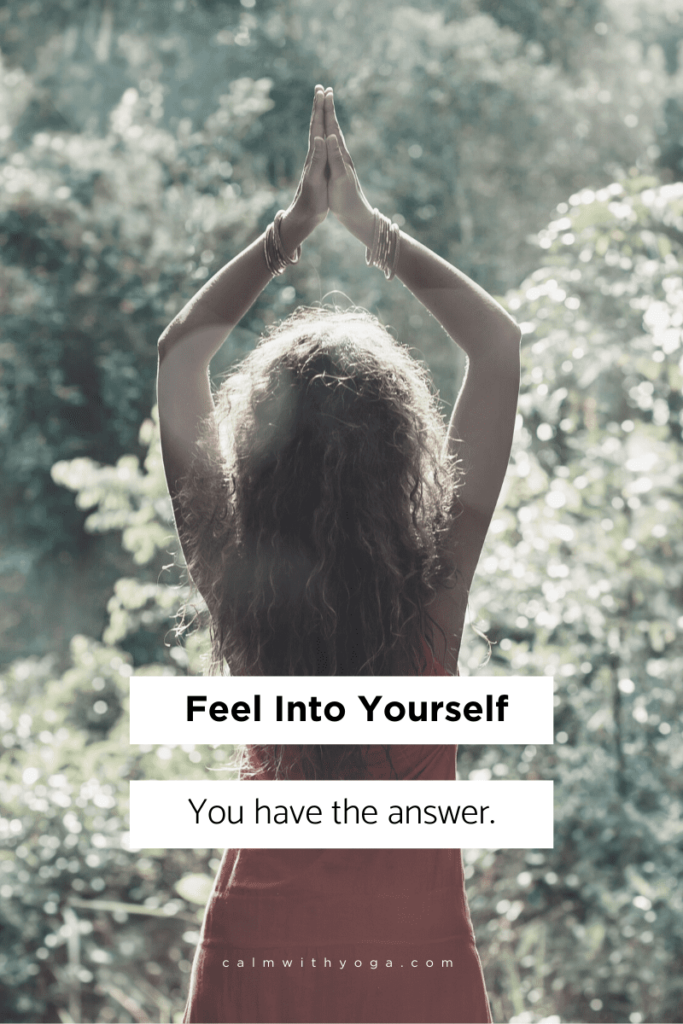
Do you feel contracted or expanded?
Where in your body do you feel it?
If something, someone, or any choice makes you feel in any way contracted or weakens you in any way, it is your own intuitive feedback trying to communicate with you.
Maybe it is not in your highest interest or values to pursue.
Maybe the timing is off.
Maybe something that’s a better fit is coming your way.
If, on the other hand, you sense an expansive, light, more open feeling, and you are in a balanced state and in tune with your highest good and your intuition – this too is your own intuitive feedback communicating with you.
Feeling expansive is the feeling of your intuitive self.
Feeling contracted is the feeling of your fearful self.
It takes practice and time to become attuned to the signals your own body gives you, especially if you’ve been wading in survival mode for a while.
But the more you repeat steps 1 and 2, the more sensitive and sharp your own self-reading abilities will become.
Again, think of a muscle that hasn’t been worked out in a while.
Take that same muscle to the gym regularly and over time, it will blossom into a fit, trim, shapely beautiful thing.
4) ONLY once you have reached the optimal state of heart coherence and Alpha/Theta state do you ask yourself the question and make a decision about what to do or which direction to take.
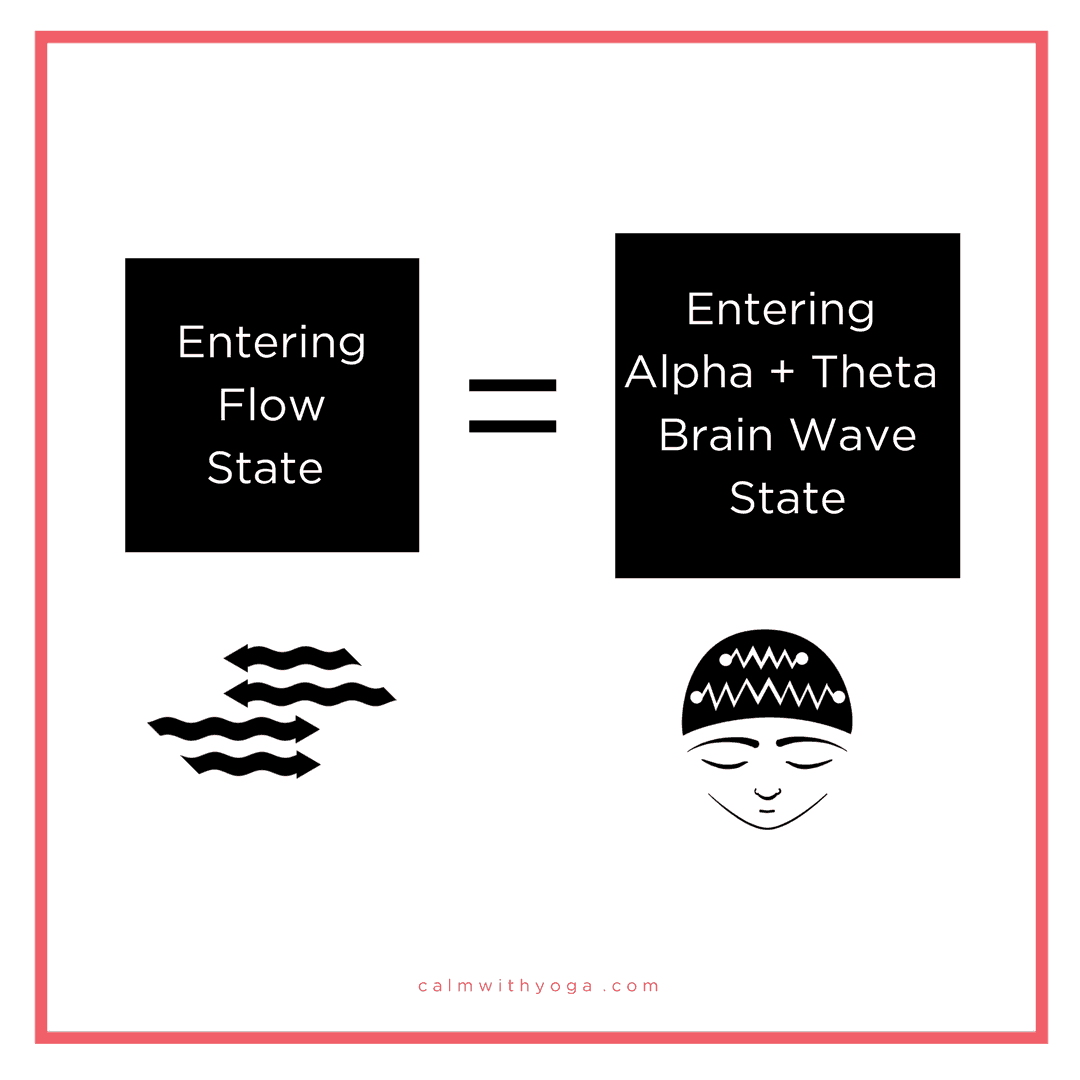
How do you know when you’ve reached this sweet spot in your heart and brain?
You will feel:
- mentally calm
- equilibrated/ balanced
- self-possessed, you are the ruler of your own internal world
- composed
- poised
- grateful/ appreciative for what is
- serene/ peaceful
- grounded
- present & mindful
- inspired
- creative
- clarity
- certainty
- in the flow
- contentment
- deeply connected to yourself or to another
I can’t stress it enough, and science backs me up on this one.
When our hearts are coherent and our brains are coherent (alpha/theta) we are then able to:
1) hear our intuition and inner guidance with clarity (as the static dissipates)
2) act on those intuitive nudges from the place of our higher selves, with confidence and practicality instead of emotionality and doubt.
Repeat any of these or all of these until you are in a coherent and equilibrated state.
You’ll notice you’ll trust yourself a whole lot more and your inner confidence will flourish stronger than the outside voices or the inner voices of fear and conditioning.
